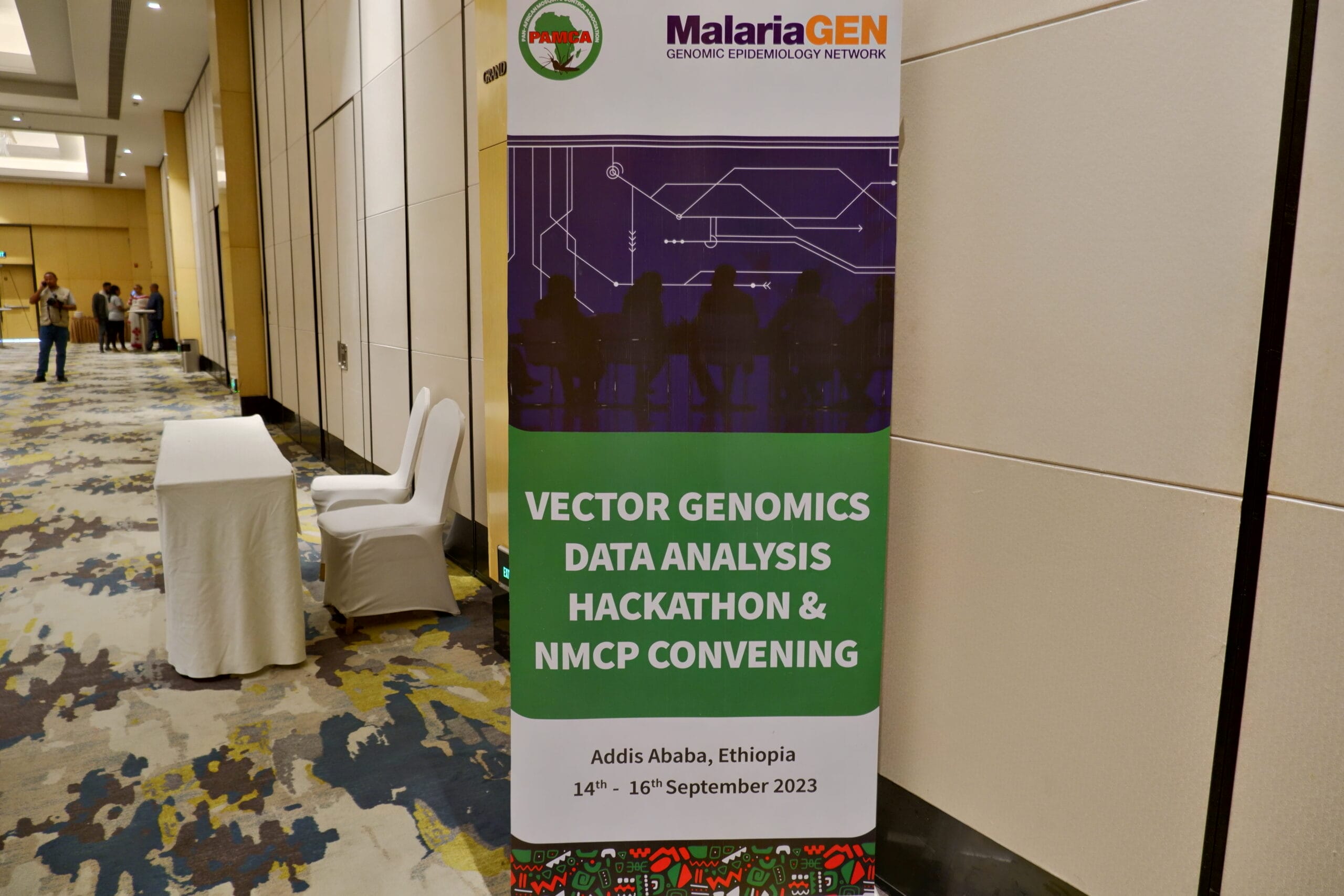This training course deals with data analysis for genomic surveillance of African malaria vectors, and was developed jointly by MalariaGEN and PAMCA (the Pan-African Mosquito Control Association).
More information is available on the course webpage here.
Motivation
Progess towards malaria elimination has stalled since 2015. Neither malaria incidence nor mortality have reduced substantially since then. Part of the reason for this may be mosquitoes developing resistance to the insecticides being used in long-lasting insecticidal nets (LLINs) and indoor residual spraying (IRS). Vector genomic surveillance could enable early detection of new insecticide resistance variants emerging in mosquito populations. This intelligence could be beneficial in designing and adapting insecticide resistance management plans.
But the data comes from multiple sources, and can be messy, complex, and confusing. This course will introduce participants to the basics of data analysis for genome surveillance, with particular reference to African malaria vectors.
Who is this training for?
Scientists and data analysts in African research groups and disease control programmes.
Objectives
At the end of this course, participants will be able to:
- Perform a range of analyses of Anopheles genomic data that are relevant to malaria vector surveillance.
- Generate plots, tables and statistics that can be used in a surveillance report.
- Interpret results and explain to others what they mean.
Timeline
The training program consists of eight virtual workshops spread over 12 weeks. Workshops combine hands-on coding with discussions and lectures.
There have been three successful iterations of the course so far:
- The first cohort completed the program in early 2023
- A second intake was held from June and July 2023
- The third iteration was held from March to May 2024
Contact pc24@sanger.ac.uk for more information.
Course leads
 Alistair Miles, Vector Surveillance Lead, Wellcome Sanger Institute, UK - Course Lead
Alistair Miles, Vector Surveillance Lead, Wellcome Sanger Institute, UK - Course Lead
 Paballo Chauke, Training Coordinator, MalariaGEN, Wellcome Sanger Institute, UK - Course Coordinator
Paballo Chauke, Training Coordinator, MalariaGEN, Wellcome Sanger Institute, UK - Course Coordinator
Instructors and Teaching Assistants
Find out more about the participants, instructors, and teaching assistants by downloading the Delegate Pack.
 Marilou Boddé, PhD Candidate, University of Cambridge/Wellcome Sanger Institute, UK - Teaching Assistant/Instructor
Marilou Boddé, PhD Candidate, University of Cambridge/Wellcome Sanger Institute, UK - Teaching Assistant/Instructor
 Kelly Bennett, Wellcome Sanger Institute, UK - Teaching Assistant
Kelly Bennett, Wellcome Sanger Institute, UK - Teaching Assistant
 Jon Brenas, Post-doctoral Fellow, Wellcome Sanger Institute, UK - Teaching Assistant/Instructor
Jon Brenas, Post-doctoral Fellow, Wellcome Sanger Institute, UK - Teaching Assistant/Instructor
 Louise Cerdeira, Post-doctoral Research Associate, Liverpool School of Tropical Medicine, UK - Teaching Asssistant
Louise Cerdeira, Post-doctoral Research Associate, Liverpool School of Tropical Medicine, UK - Teaching Asssistant
 Chris Clarkson, Principal Data Scientist, Wellcome Sanger Institute, UK - Teaching Asssistant/Instructor
Chris Clarkson, Principal Data Scientist, Wellcome Sanger Institute, UK - Teaching Asssistant/Instructor
 Nsa Dada, Research Fellow, Centers for Disease Control (CDC), USA - Teaching Assistant
Nsa Dada, Research Fellow, Centers for Disease Control (CDC), USA - Teaching Assistant
 Luc Salako Djogbenou, Director, Institut Régional de Santé Public; Deputy Director, Tropical Infectious Diseases Research Centre, University of Abomey-Calavi, Benin
Luc Salako Djogbenou, Director, Institut Régional de Santé Public; Deputy Director, Tropical Infectious Diseases Research Centre, University of Abomey-Calavi, Benin
Penny Hancock, Lecturer, Imperial College London, UK
Elijah Juma, Program Manager, Pan-African Mosquito Control Association (PAMCA), Kenya - Teaching Assistant
Nace Kranjc, Post-doctoral Researcher, Imperial College London, UK - Teaching Assistant
 Eric Lucas, Senior Research Associate, Liverpool School of Tropical Medicine, UK - Teaching Assistant/Instructor
Eric Lucas, Senior Research Associate, Liverpool School of Tropical Medicine, UK - Teaching Assistant/Instructor
Carlo de Marco, PhD Candidate, Sapienza University of Rome, italy - Teaching Assistant
Joachim Nwezeobi, Postdoctoral Fellow, Wellcome Sanger Institute, UK - Teaching Assistant/Instructor
 Sanjay Nagi, PhD Candidate, Liverpool School of Tropical Medicine, UK - Teaching Assistant
Sanjay Nagi, PhD Candidate, Liverpool School of Tropical Medicine, UK - Teaching Assistant
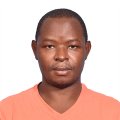 Eric Ochomo, Senior Research Officer/Head of Entomology, Kenya Medical Research Institute (KEMRI), Kenya - Teaching Assistant
Eric Ochomo, Senior Research Officer/Head of Entomology, Kenya Medical Research Institute (KEMRI), Kenya - Teaching Assistant
 Josh Reynolds, PhD Candidate, Imperial College London, UK - Teaching Assistant
Josh Reynolds, PhD Candidate, Imperial College London, UK - Teaching Assistant
 Helga Saïzonou, PhD Candidate, University of Abomey-Calavi (UAC)/Tropical Infectious Diseases Research Center (TIDRC), Benin
Helga Saïzonou, PhD Candidate, University of Abomey-Calavi (UAC)/Tropical Infectious Diseases Research Center (TIDRC), Benin
 Brandy St. Laurent, Staff Scientist, Wellcome Sanger Institute, UK - Instructor
Brandy St. Laurent, Staff Scientist, Wellcome Sanger Institute, UK - Instructor
First Cohort (2022-2023) Participants
You can read more about the participants' research interests by downloading the Delegate Pack.
 Akena Stephen Abwoye, Biostatistician/Field Epidemiology Graduate, Msc. Clinical Epidemiology & Biostatistics; Ministry of Health, Uganda
Akena Stephen Abwoye, Biostatistician/Field Epidemiology Graduate, Msc. Clinical Epidemiology & Biostatistics; Ministry of Health, Uganda
 Jewelna Akorli, Senior Research Fellow & Principal Investigator, Noguchi Memorial Institute for Medical Research, University of Ghana, Ghana
Jewelna Akorli, Senior Research Fellow & Principal Investigator, Noguchi Memorial Institute for Medical Research, University of Ghana, Ghana
 Lucas Amenga-Etego, Senior Research Fellow, West African Centre for Cell Biology of Infectious Pathogens (WACCBIP), University of Ghana, Ghana
Lucas Amenga-Etego, Senior Research Fellow, West African Centre for Cell Biology of Infectious Pathogens (WACCBIP), University of Ghana, Ghana
 Nathalie Amvongo-Adjia, Post-doctoral Research Assistant, Centre for Research in Infectious Diseases (CRID); Research Officer, Institute of Medical Research and Medicinal Plant Studies (IMPM), Cameroon
Nathalie Amvongo-Adjia, Post-doctoral Research Assistant, Centre for Research in Infectious Diseases (CRID); Research Officer, Institute of Medical Research and Medicinal Plant Studies (IMPM), Cameroon
 Antonio Nkondjio Christophe, Senior research staff, OCEAC Yaoundé, Cameroon
Antonio Nkondjio Christophe, Senior research staff, OCEAC Yaoundé, Cameroon
 Moussa Diallo, Scientific Officer, Medical Research Council Unit the Gambia at London School of Hygiene and Tropical Medicine (MRCG at LSHTM), The Gambia
Moussa Diallo, Scientific Officer, Medical Research Council Unit the Gambia at London School of Hygiene and Tropical Medicine (MRCG at LSHTM), The Gambia
 Albert Gangbadja, MSc Candidate, University of Abomey-Calvi/Tropical Infectious Diseases Research Center, Benin
Albert Gangbadja, MSc Candidate, University of Abomey-Calvi/Tropical Infectious Diseases Research Center, Benin
 Lemu Golassa, Associate Professor of Medical Parasitology/Head of Medical parasitology Research, Aklilu Lemma Institute of Pathobiology, Addis Ababa University, Ethiophia
Lemu Golassa, Associate Professor of Medical Parasitology/Head of Medical parasitology Research, Aklilu Lemma Institute of Pathobiology, Addis Ababa University, Ethiophia
 Westone Hamwata, Scientific Officer, Entomology, Tropical Diseases Research Centre, Ndola, Zambia
Westone Hamwata, Scientific Officer, Entomology, Tropical Diseases Research Centre, Ndola, Zambia
 Kondwani Kachali, Research Assistant, Malaria Alert Centre-Communicable Diseases Action Centre (MAC-CDAC), Kamuzu University of Health Sciences, Malawi
Kondwani Kachali, Research Assistant, Malaria Alert Centre-Communicable Diseases Action Centre (MAC-CDAC), Kamuzu University of Health Sciences, Malawi
 Luna Kamau, Principal Research Scientist & Deputy Director, Centre for Biotechnology Research and Development, Kenya Medical Research Institute, Kenya
Luna Kamau, Principal Research Scientist & Deputy Director, Centre for Biotechnology Research and Development, Kenya Medical Research Institute, Kenya
 Ruth Kouamé, PhD Candidate, Centre Suisse de Recherches Scientifiques, Côte d’Ivoire
Ruth Kouamé, PhD Candidate, Centre Suisse de Recherches Scientifiques, Côte d’Ivoire
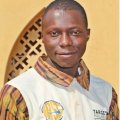 Mahamadi Kientega, PhD Candidate (Applied Biology and Modelling of Biological Systems/Medical Entomology), Nazi Boni University (ACE ITECH-MTV), Burkina Faso
Mahamadi Kientega, PhD Candidate (Applied Biology and Modelling of Biological Systems/Medical Entomology), Nazi Boni University (ACE ITECH-MTV), Burkina Faso
 Zandile Langa, MSc. Candidate, Wits University; Research Assistant, Vector Control Reference Laboratory, National Insitute of Communicable Diseases, South Africa
Zandile Langa, MSc. Candidate, Wits University; Research Assistant, Vector Control Reference Laboratory, National Insitute of Communicable Diseases, South Africa
 Ibra Lujumba, Bioinformatics Trainer Fellow, PAMCA, Uganda
Ibra Lujumba, Bioinformatics Trainer Fellow, PAMCA, Uganda
 Mbanga Muleba, Scientific Officer, Tropical Diseases Research Centre, Ndola, Zambia
Mbanga Muleba, Scientific Officer, Tropical Diseases Research Centre, Ndola, Zambia
 Givemore Munhenga, Principal Medical Scientist, National Institute for Communicable Diseases; Senior Researcher, University of the Witwatersrand, South Africa
Givemore Munhenga, Principal Medical Scientist, National Institute for Communicable Diseases; Senior Researcher, University of the Witwatersrand, South Africa
 Sophia Hussein Mwinyi, Research and Data Scientist, Ifakara Health Institute, Tanzania
Sophia Hussein Mwinyi, Research and Data Scientist, Ifakara Health Institute, Tanzania
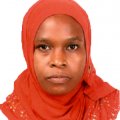 Faridah Nansamba, Data Manager, Division of Health Information, Ministry of Health, Uganda
Faridah Nansamba, Data Manager, Division of Health Information, Ministry of Health, Uganda
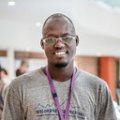 El Hadji Amadou Niang, Deputy director, Laboratoire d'Ecologie Vectorielle et Parasitaire, Université Cheikh Anta Diop, Senegal
El Hadji Amadou Niang, Deputy director, Laboratoire d'Ecologie Vectorielle et Parasitaire, Université Cheikh Anta Diop, Senegal
 Jane Njeri Mwangi, Bioinformatics Fellow, Pan-African Mosquito Control Association, Kenya
Jane Njeri Mwangi, Bioinformatics Fellow, Pan-African Mosquito Control Association, Kenya
 Joel Odero, PhD Candidate, University of Glasgow, UK and Ifakara Health Institute, Tanzania
Joel Odero, PhD Candidate, University of Glasgow, UK and Ifakara Health Institute, Tanzania
 Fatoumata Seck, PhD Candidate (Applied Biology and Modelling of Biological Systems/Medical Entomology), African Centre of Excellence in Biotechnological Innovations for the Elimination of Vector-borne Diseases (ACE ITECH-MTV), Burkina Faso
Fatoumata Seck, PhD Candidate (Applied Biology and Modelling of Biological Systems/Medical Entomology), African Centre of Excellence in Biotechnological Innovations for the Elimination of Vector-borne Diseases (ACE ITECH-MTV), Burkina Faso
Additional Participants
Deriba Abera
Faraji Abilahi
Enock Kofi Amoako
Kala Chouakeu
Nelly Armanda
Benoit Sessinou Assogba
Mayi Marie Paul Audrey
Alex Auyang
Catherine Bakari
Lemonde Bouafou
Soromane Camara
Joseph Chabi
Edi Constant
Joseph Gichuhi
Alexandria Harrot
Mahamadi Kientega
Pilate Kwi
Ruth Lekundayo
Edward Lukyamuzi
Surina Maharaj
Mara Maquina
Sylvia Milanoi
Leon Mugenzi
Emmanuel Mwanga
Dyane Nanmede
Edwin Ogola
Diana Omoke
Brian Polo
Nsango Sandrine
Jacqueline Waweru
Rosine Z. Wolie
Ayebi Hermann
Florent Yapo
Josue Zanga
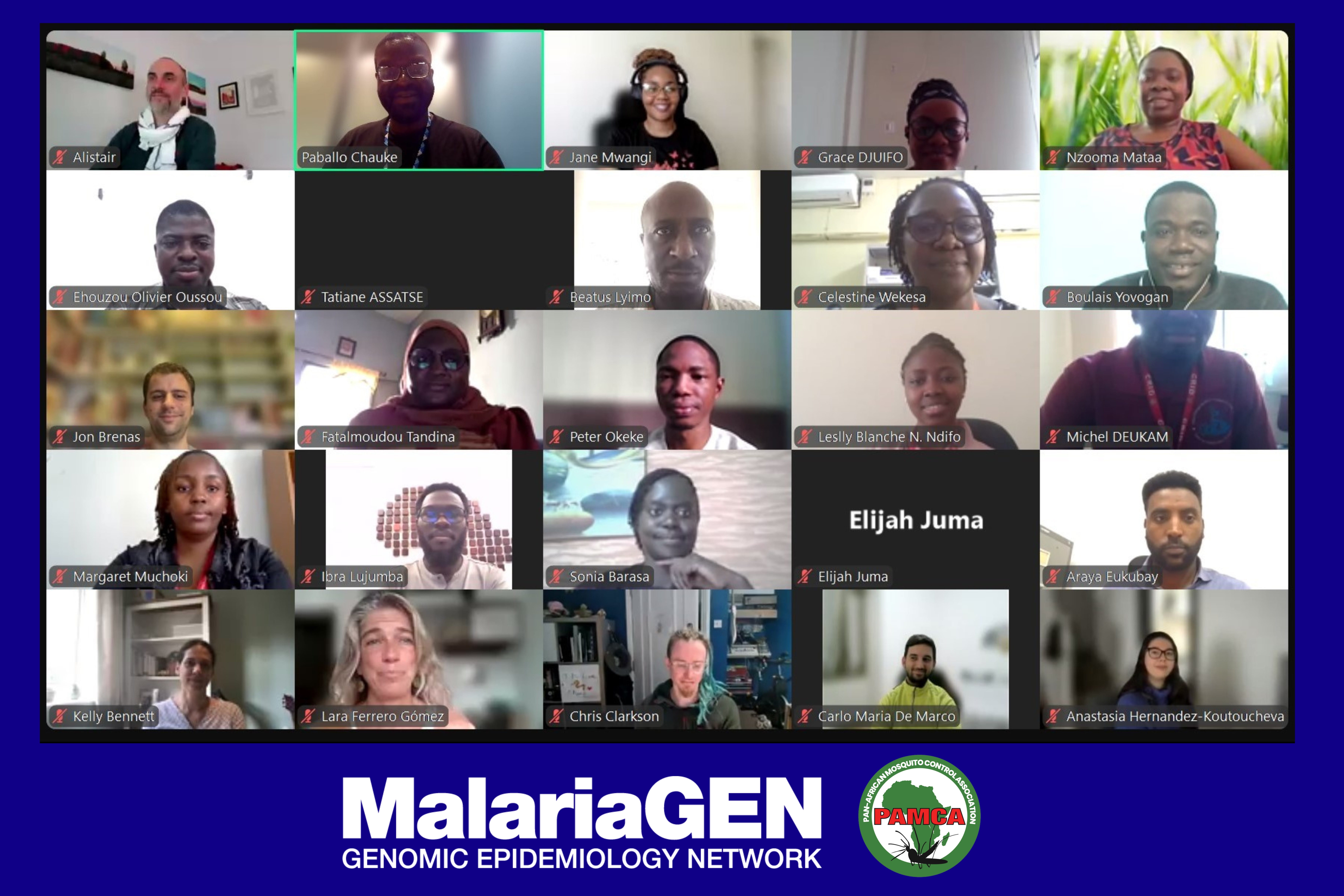
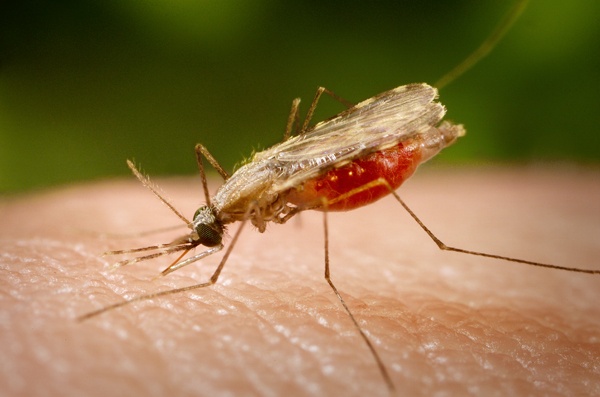

Meet the course trainers and participants by reading through the Delegate Pack.
